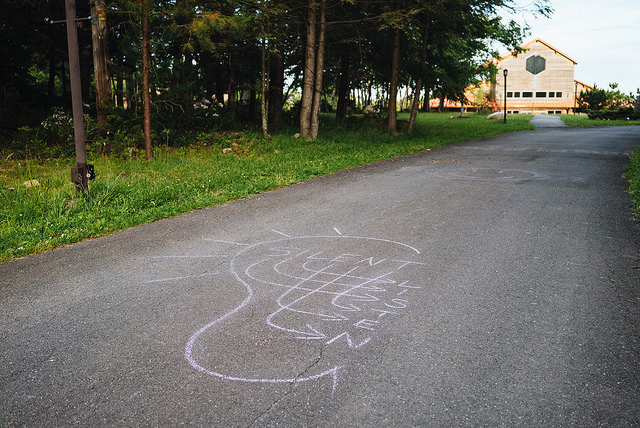By Jonathan Borella

One question commonly asked at meditation retreats is how to keep up the momentum of practice after going home and returning to “the real world.” People commonly relate experiences of enthusiasm and high energy for meditation only to see it wane back into negligence and old habits after a short while.
Dharma teachers offer many techniques and practical advice for overcoming these kinds of obstacles. For example, we learn that committing to a short period of sitting meditation every day is helpful. Or, we’re reminded that anything we find ourselves doing, we can do mindfully if we come back to our breathing. We are also encouraged to spend more time doing things we enjoy or that are intrinsically nourishing such as hiking, eating healthy food, and surrounding ourselves with wholesome people.
These are all important aspects of a mature and well-rounded meditation practice, for sure. When we are having difficulty maintaining a commitment to practicing, however, it is unlikely we will be able to follow through on any of these recommendations for long. Rather than scattering around to realign external factors, dwindling practice energy is a bell of mindfulness reminding us to look inside and examine our relationship with ourselves.
Every time I had a feeling of apathy, guilt, resentment, or loneliness – every time I ever had thoughts of unworthiness or deficiency – it was because I wasn’t taking care of myself.
I was recently given this opportunity during a sutra study group I’ve been participating in. In this group, we are lucky to be hosted and facilitated by a seasoned Dharma teacher. This particular occasion happened to be a question and answer session in which I asked about the first section of the sutra we were studying. By the time the teacher finished responding to my questions, I realized she hadn’t even touched on the material that I asked. Instead, she answered the question I should have asked. The question was, “What am I practicing for? Why am I doing this? Why is this important? Why did I choose to come live at a monastery?” If we are meditation practitioners, these are questions we should be asking ourselves constantly.
The answer was profound. I realized that no matter how bad I feel about myself; no matter how unworthy or how un-loveable I think I am, no matter how deficient I believe myself to be, no matter what I think I need to possess to be whole, there is some little kernel in there that cares about this person, that wants him to be happy, peaceful, and free. There was suddenly a voice in my head that said, “Oh my god. I think I love myself!” And, it wasn’t like I had just come to love myself in that moment. Rather, I realized that I had loved myself all along and every time I had a feeling of apathy, guilt, resentment, or loneliness – every time I ever had thoughts of unworthiness or deficiency – it was because I wasn’t taking care of myself.
In his teaching on the Four Nutriments, the Buddha said that consciousness – our thoughts, feelings, perceptions, and volitions – can be like a sharp knife we use to stab ourselves thousands of times a day. I’ve known people who actually do cut themselves. Most of us aren’t much different; we just use different kinds of knives. Food, drugs, and alcohol can be like a knife. Craving is a knife. The internet, music, and sex can be like a knife. Judgments and criticisms can be like a knife. It was a breakthrough for me to realize these are the things I go to when I’m “not practicing.” These are the things that slow the momentum of my practice. Now that I can see them as different kinds of knives that I use to harm myself, I know that I have to be mindful about how I engage them because I actually do love myself.
Food, drugs, alcohol, the internet, music, and sex can be like a knife. Judgments and criticisms can be like a knife. I realize these are the things I go to when I’m “not practicing.”
Occasionally, there are still moments when habit energy takes over and I find myself being carried away. But those moments are short lived – just blips on the radar – and they always arise with an awareness like a voice in my head that says, “Why are you doing this? Stop it! I love you.” Then, it is easy to come back to my practice – come back to myself. It is important to organize my life in a way that creates space and energy for resting, contemplation, and enjoying life. But, these are supporting conditions and they cannot be sustain without loving inward. This is the engine that drives momentum.
Jonathan Borella is a member of the Order of the Interbeing and is involved in Sangha-building in the Bay Area, California.















